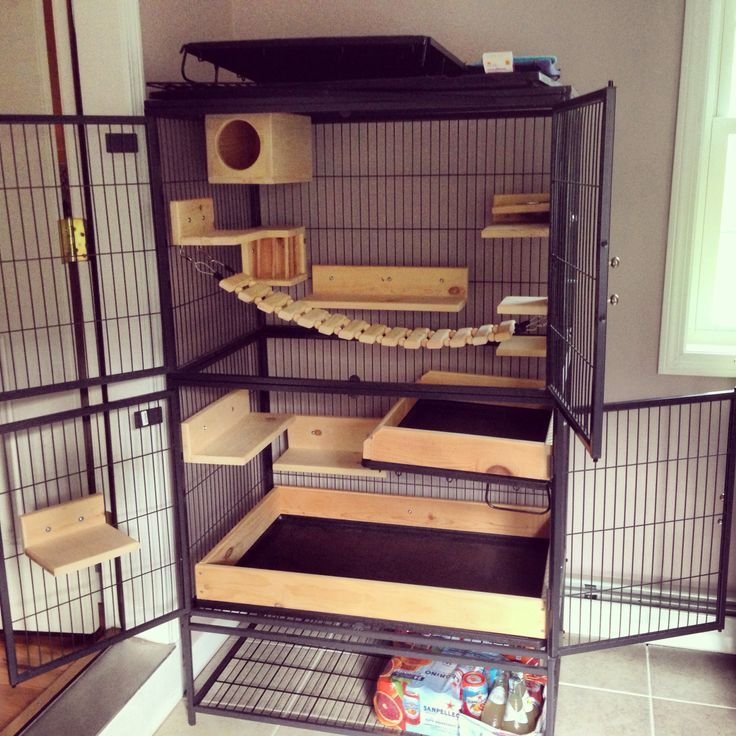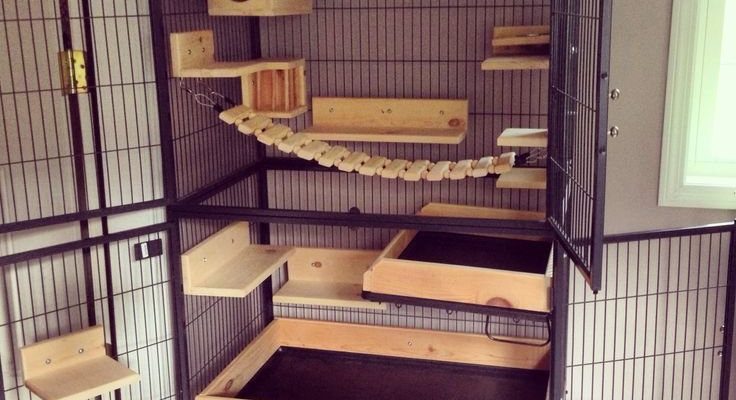
Now, before jumping into the nitty-gritty, let’s think about their needs. An ebony chinchilla isn’t just looking for a cozy spot to curl up; they also require a specific diet, a well-set-up cage, and regular grooming. It’s about creating a little paradise that feels safe and fun for them. So grab a snack, sit back, and let me guide you through the basics of ensuring your chinchilla lives its best life.
Understanding Ebony Chinchilla Behavior
Ebony chinchillas are curious and energetic creatures. They love to hop around, explore, and even engage in some playful mischief. Their playful nature can be a delight to watch, but it also means they need a stimulating environment. Without enough mental and physical challenges, these little furballs can get bored—and trust me, a bored chinchilla is not a happy chinchilla.
You might find them climbing on things or playing with toys. They’re like tiny acrobats, and it’s crucial to encourage these natural behaviors. Providing them with various toys and structures can keep them entertained for hours. Think of it like giving a kid a playground—if there’s nothing to climb on or explore, they’ll quickly lose interest.
Remember, social creatures by nature, chinchillas also thrive on interaction, so spending time with them can help strengthen your bond. You might even find that your chinchilla starts to recognize you!
Diet: What to Feed Your Ebony Chinchilla
One of the most critical components of caring for an ebony chinchilla is getting their diet just right. Trust me, feeding them isn’t as simple as tossing in some pellets. Their digestive system is delicate, and what goes into it is crucial for their overall health.
What Should They Eat?
A good diet for your chinchilla includes:
- High-Quality Pellets: Look for pellets specifically formulated for chinchillas. They’re rich in fiber and low in fat, which is essential.
- Hay: Timothy hay is a fantastic option. It aids in digestion and helps keep their teeth healthy.
- Fresh Vegetables: Small amounts of fresh veggies like kale or carrots can be given occasionally. Just make sure to avoid anything too sugary or starchy.
You might be wondering about treats. While chinchillas love them, it’s crucial to limit sugary treats like fruits. Too much sugar can lead to health issues like obesity and dental problems. So, keep treats as a rare indulgence!
Setting Up the Perfect Cage
The cage is like your chinchilla’s home, and who doesn’t want a comfy space to chill out? A well-set-up cage will not only keep your chinchilla happy but will also make your life easier as their owner.
Choosing the Right Cage
Look for a roomy cage that’s at least 2 feet wide, 2 feet deep, and 4 feet tall. Chinchillas love to leap and climb, so vertical space is essential. Wire cages are a good choice since they allow for good ventilation, but make sure the bars are close enough together so little paws don’t escape!
Important Cage Additions
– Shelves: Adding shelves gives your chinchilla various levels to explore, mimicking their natural habitat.
– Bedding: Use safe bedding like aspen shavings or paper-based products. Avoid cedar or pine, as they can be harmful.
– Hiding Spots: Include cozy hideouts or tunnels. Chinchillas love to snuggle away where they feel safe.
Creating a stimulating environment means incorporating toys, chews, and a dust bath area. Honestly, your chinchilla will appreciate the thought you put into their space!
Grooming Your Ebony Chinchilla
Let’s get real: grooming might not be the first thing that comes to mind when thinking about pet care, but for chinchillas, it’s essential. They have unique fur that requires regular attention to keep it soft and shiny.
Dust Baths
Chinchillas take dust baths instead of water baths. A dust bath helps remove oils and dirt from their fur, keeping it in perfect condition. You can find special chinchilla dust at pet stores. Just offer a small amount in a shallow dish for your chinchilla to roll around in a couple of times a week. They’ll love it!
Brushing
While chinchillas can groom themselves, brushing them occasionally is a good idea to help prevent mats and tangles. Use a soft-bristle brush designed for small animals. Spend a few minutes gently brushing their fur, and they’ll appreciate the extra attention.
Nail Care
Keeping an eye on their nails is important too. If you hear clicking sounds while they’re hopping around, it might be time for a nail trim. Make sure to use a nail clipper designed for small animals, and take your time to avoid cutting into the quick (that sensitive part inside the nail).
Common Health Issues to Watch For
Like any pet, your ebony chinchilla can face health concerns. It’s good to be aware of common health issues, so you can catch them early.
Dental Problems
Chinchillas have continuously growing teeth. If they don’t wear them down naturally through chewing (like on hay and hard treats), it can lead to overgrown teeth, which can cause pain and eating difficulties. Regularly check their teeth and ensure they have plenty of chew toys available.
Digestive Issues
Digestive problems can arise if their diet is off balance. Signs of trouble can include lack of appetite, bloating, or irregular droppings. If you notice any of these signs, it’s time to consult with a vet who understands chinchilla care.
Skin Issues
Looks out for any unusual changes in your chinchilla’s skin or fur. If you notice bald patches or excessive scratching, they might be dealing with issues like mites or allergies. A vet visit can help diagnose and treat the problem effectively.
Creating a Loving Environment
Lastly, the emotional well-being of your ebony chinchilla is just as important as their diet, cage setup, and grooming. Building a bond with your chinchilla takes patience and love. Spend quality time with them outside their cage for playtime, and don’t rush it—allow them to explore at their own pace.
Consider having a small area set up specifically for play. Use safe toys to encourage movement and interaction. Just like us, chinchillas need variety to keep things interesting!
Investing time and effort into creating a loving home will reflect in your chinchilla’s happiness. In the end, a well-cared-for chinchilla will reward you with affection and playful enthusiasm.
Remember, these creatures are a long-term commitment; they can live for over a decade! So, ensuring you have the right setup and care will lead to a fulfilling companionship. Caring for an ebony chinchilla is a journey full of joy, and you’re definitely in for an adventure!

